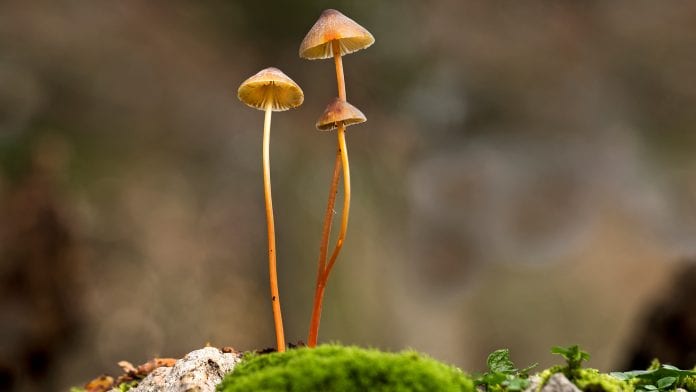
A new wave of scientific research into psilocybin has opened up new avenues for treating depression.
King’s College London’s Psychedelic Trials Group at the Centre for Affective Disorders is currently running randomised, controlled trials of psilocybin to treat depression.
Psilocybin is the active component found in numerous mushrooms – colloquially known as ‘magic mushrooms’ – that produces a psychoactive effect on a person when ingested.
Since the 1970’s, the component has been classed as a controlled drug in most countries; however, it has been used for thousands of years as a sacred entheogen by many cultures across the globe.
The National Institute for Health Research (NIHR) awarded the centre a large grant in 2017 to investigate psilocybin as a treatment for clinical depression that has not improved with standard treatments.
These trials will be using the gold standard design of a randomised, placebo-controlled trial and will be led by Dr James Rucker.
Treating depression with psilocybin
King’s College are looking for people over the age of 18 who currently suffer with depression that has not responded to the usual antidepressant treatments to take part in the trials.
Although most people respond well to common treatments, there are a number who do not, which can lead to further problems emotionally, mentally and socially. Those who have treatment-resistant depression also have higher rates of suicide.
Recent research into using psilocybin to treat depression hypothesises that the compound helps to change unhealthy patterns of thinking and behaviour that lay the foundations for treatment resistant depression, as well as other disorders including PTSD, anxiety and addiction. Recently, an anorexia psilocybin treatment study has also been launched to research whether psilocybin can help break the patterns of thinking and behaviour that cause the disorder.
Currently, treatment with psilocybin for mental disorders is combined with therapy to help nurture change and growth in people struggling with their condition.
Psilocybin works by impacting the serotonin system. As the centre describes, psilocybin works by ‘relaxing the brain mechanisms that mediate thought and behaviour and as this happens, old patterns ‘dissolve’ and a therapeutic ‘window of opportunity’ is introduced’.
The centre said: ‘The aim of the research is to determine whether psilocybin delivered with psychological support and medical supervision is a safe treatment for people with difficult to treat depression.
‘To determine this, the trial will collect detailed data on adverse events as well as comparing participant’s ratings of their depression symptoms before and after treatment and between different doses of psilocybin.
‘We will also investigate which form of psychological support best meets the needs of those receiving psilocybin and whether we can use cognitive tests, blood tests and brain scans to understand how psilocybin works in the brain and who it might suit best.’

























i would be very greatful if you could add me to the next available trials
Whatever you need, I’m your guy. I too can be a fungi, lol.
Stock photo of Mycena lol